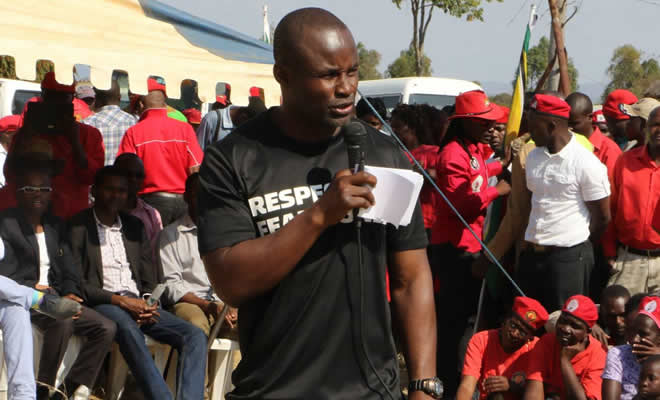Difficult lessons for ZANU-PF from Norton
By Alois Masepe
Last year, I wrote an article in the Financial Gazette entitled “Transform or perish” in which I exhorted ZANU-PF to do away with its archaic communist inspired mantra of commandist politics.

I pointed out that Kenneth Kaunda’s Zambia United Independence Party and Kamuzu Banda’s Malawi Congress Party were dumped in the dustbin of political history because they failed to come to terms with the popular demand for democratic reform.
Liberation movements such as FRELIMO of Mozambique, SWAPO of Namibia and the Democratic Party in Botswana have survived the popular purge and political “winds of change” because the ruling political parties in question, not only embraced democratic reform, but also went on to preside over and be the catalysts of political change in their countries.
The above parties today still remain relevant and key to the new political deal unfolding in the region.
When it assumed control of government after the 2013 elections, ZANU-PF had a golden opportunity to change its political direction through the vigorous implementation of the new Constitution, energetically pursuing economic regeneration and development programmes and, most importantly, discarding completely its violence-based political DNA.
None of the above happened.
The results of the Norton by-election have important lessons for all the political players involved and the nation at large.
Firstly, ZANU-PF does not see the inclination to change course or it is incapable of doing so.
The one-party-state mentality seems deeply imbedded in the party’s pathology. It associates/equates democratic reform with relinquishing power not with political renewal.
We saw blood on the floor in Norton during the campaign period.
The age old campaign strategy of carrot and stick, cloak and dagga was again employed in good measure.
But this time around, the desired electoral results failed to emerge.
The people of Norton decided that the cesspool of repression, oppression and intimidation needed to be stopped this time around. The message was clear: We cannot accept the commitment of violence in protection, support or defence of a political ideology.
Secondly, the Temba Mliswa ZANU-PF faced in the Hurungwe West in the yester year by-election was not the same person they confronted in the Norton by-election.
The Mliswa that contested the Hurungwe West by-election was a political lone ranger, with a fickle and bemused Jim Kunaka in tow.
In Norton, Mliswa had the full support of National Electoral Reform Agenda and, to crown it, a vociferous and angry guard of war veterans.
Thirdly, with exception of the 2013 election, Norton has been (as is the norm in most urban centres) a safe home for the opposition since 2000.
In this by-election, the electorate in Norton restored the pre 2013 political equation.
It is instructive to observe that the turn-out for the losing MDC-T candidate in the 2013 elections was about 9 000.
In the recent by-election, Mliswa polled almost 9 000 votes.
What are the lessons to be gleaned from the just-ended Norton by-election going forward?
Firstly, ZANU-PF’s overly reliance on political repression, threats/intimidation and political subterfuge is a decadent and dead-end alley political strategy.
It is indulging in sunset politics.
The Norton by-election results clearly show that, in the fullness of time, those who ride the wind will reap the whirlwind.
Secondly, ZANU-PF’s reluctance and discomfort to fully implement a people-ordained new Constitution is ill-advised, politically myopic and will have boomerang effect on the ruling party, come 2018.
The party should stop play-acting at democratic reform, but must move to totally embrace the new dawn hour politics as defined in the new Constitution.
Ideological infidelity/immorality is to profess to believe in political pluralism when, in fact and in practice, one is a high priest of the one-party-state anachronism.
Thirdly, when elected into office, a ruling party’s main goal/objective and true end is the raising of the standard of life of the common individual.
It is up to ZANU-PF to honestly answer the following questions.
What has, since its wake, been happening to:
•Economic development and per capita growth?
•The standard of living of the people?
•Unemployment and underemployment levels?
•Political tolerance and co-existence?
•Health care and welfare for the common person?
An honest answer to the above should signal and determine the way forward on the part of ZANU-PF.
Fourthly, while the victory of Mliswa in Norton is milk and honey to the aspirations and expectations of change agents, it should not escape our observation that more than half (about 20 000) of the electorate did not turn out to vote in Norton.
The above fact is a double-edged sword to both parties within and without government.
It is bad for ZANU-PF that, after all the organisational effort and resources put into the by-election campaign in Norton, only 6 192 voters turned out to vote for it out of a possible 35 000 voters.
In the same vein, it is also an indictment against the opposition that, in spite of all the economic hardships, the twilight existence currently being experienced by the people and the number of public protests staged against the government in recent times, only 8 927 voters bothered to cast their ballots for the opposition.
The conclusion from the foregoing is that the Norton by-election results indicate or reflect a murky and fluid body politic in the early process of trying to redefine itself.
Mliswa rode on the residual MDC-T urban support base in Norton while ZANU-PF depended heavily on its core support base.
The large majority of the electorate still stands — arms akimbo — on the touchline as observers to the political drama.
The existence of such a majority “observer” group within the electorate body reflects a yet to decide or yet to be convinced voter.
This scenario represents an open opportunity to the gladiators on both sides the political divide. The Financial Gazette






